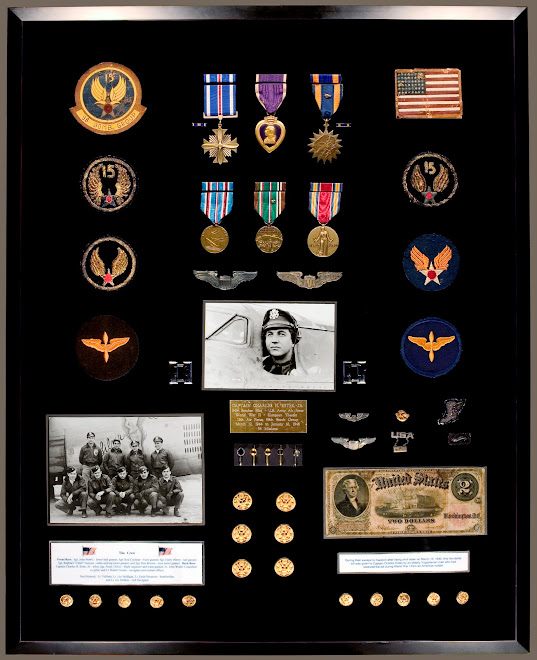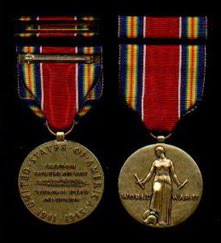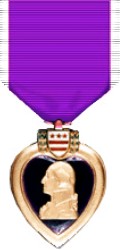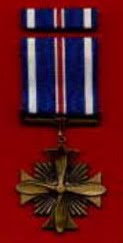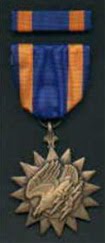

TROOP TRAINS HEADED HOME


(Continuation of Captain Estes's War Memoirs)
"We made it to Bari, and they took us to an office
where there was a captain, and this captain knew
that we were coming, and was prepared for us.
He wanted to go through some questions with us
and answers, and I guess you'd call it a debriefing.
And so he asked me a bunch of questions and the
the first question was: Why did we bail out of
an $80,000 airplane or $120,000 airplane... or
whatever they said it was worth. And I told
this captain that I thought the world and all
of the B24, that it was a fine airplane and
I was privileged to be a pilot and to fly one,
but that the plane that we had bailed out of
had taken us as far as it could go, and it was
no reason for us to stay in it any longer, because
the farther we went in it, the farther away from
civilization we got. Well, anyway, he didn't
like the answer but he was glad to see us,
because the war in Europe had already --
well, it was almost at an end, and he was
ready to go home and was sitting there
waiting for us to come and to see that we
got back to our squadron area, and everything
was okay with us, and of course, we appreciated
that.
When we got back to our squadron, John and
I had infectious Hepatitis, and they sent us
back to Bari to the hospital, and there we stayed
until we were discharged which really and truly
we weren't well when we got out, but we stayed
in the hospital about three to four weeks. And
when we went back to our squadron they were
all gone; they'd been put on a boat and sent back
to the United States.
Well, what was going to happen to us...John and I?
Swain was gone and all the rest of the crew were
on a boat and going back home, and we were
still over there. Well, they sent us to a squadron
north of Lecci and we stayed around there for
a while and there was some several men there
that had been left like us and were there waiting
for a way to get home. Well, they had an ol' B24
sitting out there in the weeds in the grass and they
pulled it out and they told us to get in it and crank
it up and see if it would fly, which we did and it did
fly. It cranked up and John and I flew it around
the landing strip for two or three trips and came
back in and landed it, and they said, well, this is
going to be your ride home. So they said you load
all of these men in that thing and y'all go on back
home.
Well, we didn't have a navigator but we felt like
we would do anything we could to get away from
Italy and on back on our way home, so we got
in the plane, and there were about ten of us I would
say, and we headed out and went reverse of our
trip to Italy. We went back through Tunisia and
finally to French Morocco.
When we landed in Morocco the boy that was
serving as the crew chief discovered that we had
a leak in one of the rain tanks, and so we were
stuck there on the ground until they could send
someone over to Tunisia and get us a tank. When
the tank came it wasn't for a B24, it was for a C47,
and that wouldn't fit so we were stuck there again,
and just as well because I didn't want to face going
across the ocean in an ol' worn out B24, so we caught
a C54 at Marrakesh, and it carried us to the Bahamas
and then onto LaGuardia Field where we landed.
When we got off the plane in LaGuardia there was
a Red Cross stand there and we went by there to
see what they had to offer us, and to John's delight
they gave him a quart of milk and he drank that
all in one gulp almost; but I didn't exactly care
for milk, and they didn't have any Rocky so I just
did the best that I could with what they had.
And they sent us on up to Boston where we stayed
a couple of days and then they loaded all of us
on a troop train and it was headed south and people
got off at different places. We went all of the way
to Camp Shelby, at least I did. And I got off the
train and caught a bus home, and oh, what a
glorious sight Yazoo City was."
(To be continued.)
"We made it to Bari, and they took us to an office
where there was a captain, and this captain knew
that we were coming, and was prepared for us.
He wanted to go through some questions with us
and answers, and I guess you'd call it a debriefing.
And so he asked me a bunch of questions and the
the first question was: Why did we bail out of
an $80,000 airplane or $120,000 airplane... or
whatever they said it was worth. And I told
this captain that I thought the world and all
of the B24, that it was a fine airplane and
I was privileged to be a pilot and to fly one,
but that the plane that we had bailed out of
had taken us as far as it could go, and it was
no reason for us to stay in it any longer, because
the farther we went in it, the farther away from
civilization we got. Well, anyway, he didn't
like the answer but he was glad to see us,
because the war in Europe had already --
well, it was almost at an end, and he was
ready to go home and was sitting there
waiting for us to come and to see that we
got back to our squadron area, and everything
was okay with us, and of course, we appreciated
that.
When we got back to our squadron, John and
I had infectious Hepatitis, and they sent us
back to Bari to the hospital, and there we stayed
until we were discharged which really and truly
we weren't well when we got out, but we stayed
in the hospital about three to four weeks. And
when we went back to our squadron they were
all gone; they'd been put on a boat and sent back
to the United States.
Well, what was going to happen to us...John and I?
Swain was gone and all the rest of the crew were
on a boat and going back home, and we were
still over there. Well, they sent us to a squadron
north of Lecci and we stayed around there for
a while and there was some several men there
that had been left like us and were there waiting
for a way to get home. Well, they had an ol' B24
sitting out there in the weeds in the grass and they
pulled it out and they told us to get in it and crank
it up and see if it would fly, which we did and it did
fly. It cranked up and John and I flew it around
the landing strip for two or three trips and came
back in and landed it, and they said, well, this is
going to be your ride home. So they said you load
all of these men in that thing and y'all go on back
home.
Well, we didn't have a navigator but we felt like
we would do anything we could to get away from
Italy and on back on our way home, so we got
in the plane, and there were about ten of us I would
say, and we headed out and went reverse of our
trip to Italy. We went back through Tunisia and
finally to French Morocco.
When we landed in Morocco the boy that was
serving as the crew chief discovered that we had
a leak in one of the rain tanks, and so we were
stuck there on the ground until they could send
someone over to Tunisia and get us a tank. When
the tank came it wasn't for a B24, it was for a C47,
and that wouldn't fit so we were stuck there again,
and just as well because I didn't want to face going
across the ocean in an ol' worn out B24, so we caught
a C54 at Marrakesh, and it carried us to the Bahamas
and then onto LaGuardia Field where we landed.
When we got off the plane in LaGuardia there was
a Red Cross stand there and we went by there to
see what they had to offer us, and to John's delight
they gave him a quart of milk and he drank that
all in one gulp almost; but I didn't exactly care
for milk, and they didn't have any Rocky so I just
did the best that I could with what they had.
And they sent us on up to Boston where we stayed
a couple of days and then they loaded all of us
on a troop train and it was headed south and people
got off at different places. We went all of the way
to Camp Shelby, at least I did. And I got off the
train and caught a bus home, and oh, what a
glorious sight Yazoo City was."
(To be continued.)

